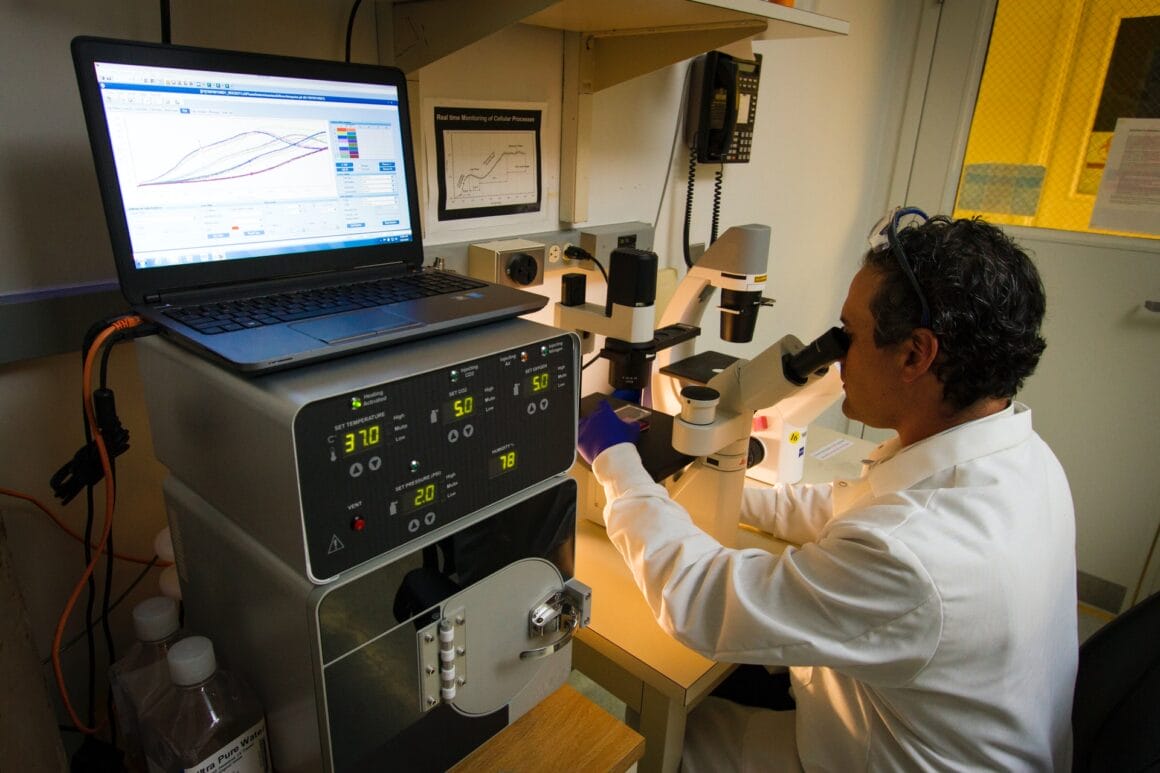Israel-based startup Scopio has created a scanner named Scopio100x that can image an entire blood sample while maintaining a magnification of 100x and blood smears can now be performed remotely.
This will mean lowering the initial expenses of these operations. Hematologists working from anywhere might review samples once they were scanned in the lab.
“We’ve seen lines of people in hematology labs leaning over microscopes, in some cases, using a manual clicker to count cells. We thought this is just a perfect example of how computer vision tools can assist the experts, and get better results much quicker.”Itai Hayut, CEO and Founder, Scopio
Blood tests for peripheral smears are part of a number of tests that can be used to diagnose blood disorders. In most circumstances, however, they are no longer the first-line treatment.
If the results of those tests are abnormal, a doctor may wish to examine the samples in person. In that instance, a peripheral blood test will be performed to analyse cell size, shape, and check for illness markers.
Cell-imaging systems have already been shown to have advantages in research, and experts are already familiar with them. These technologies, among other things, enable for remote evaluation (albeit roughly 10-20% of samples still require in-person confirmation), reduce eyestrain, can cut labour expenses, make it easy to archive and retrieve blood films, and are useful teaching aids.
Scopio, according to Hayut, can be the next generation of this technology because it appears to have found a niche within it: existing imaging equipment doesn’t capture the complete slide.
“Scopio is the first company in the world that managed to break the trade-off between field of view and resolution.”Itai Hayut, CEO and Founder, Scopio
They were able to capture the entire slide while maintaining a magnification of up to 100x, which is what is required to complete a peripheral blood smear.
The ability to scan the entire slide leads to Scopio’s second point: “two orders of magnitude” more visualised and digitised cells means more applications can be built around them. In essence, according to Hayut, new algorithms will be able to learn more from the peripheral blood smear in the first place.
Scopio, like a number of other key participants in the field, has been working to acquire FDA approval for particular clinical decision-making algorithms. (Think of it as haematologist support software that helps them differentiate various cell kinds.)
Through the 510(k) new device process, the FDA authorised a clinical support system from Scopio in October 2020 that classifies cells and allows a haematologist to examine those automatic classifications. (It was approved through this route since the classification process was remarkably similar to that of an existing product.)
The startup has also recently completed a clinical research on an app that helps technicians review bone marrow aspirate samples, which are commonly used to screen for diseases like leukaemia, multiple myeloma, and anaemia. The results of that trial have yet to be released, but the company aims to submit a clinical decision-support system for bone marrow aspirate analysis to the FDA in March.
The company’s Series C funds have a single focus: commercial delivery. The company intends to increase its commercial team in Europe and the United States, as well as try to break into clinical labs (Scopio’s key client).
Scopio’s total funding now stands at $85 million after this Series C transaction. OurCrowd and an unnamed strategic investor lead the round. It includes previous investors Olive Tree Ventures and Aurum Ventures, as well as new investors Mizrahi-Tefahot Bank Invest and Ilex Medical.
Subscribe to Think Remote for the latest news, tips and stories from the remote work world.






